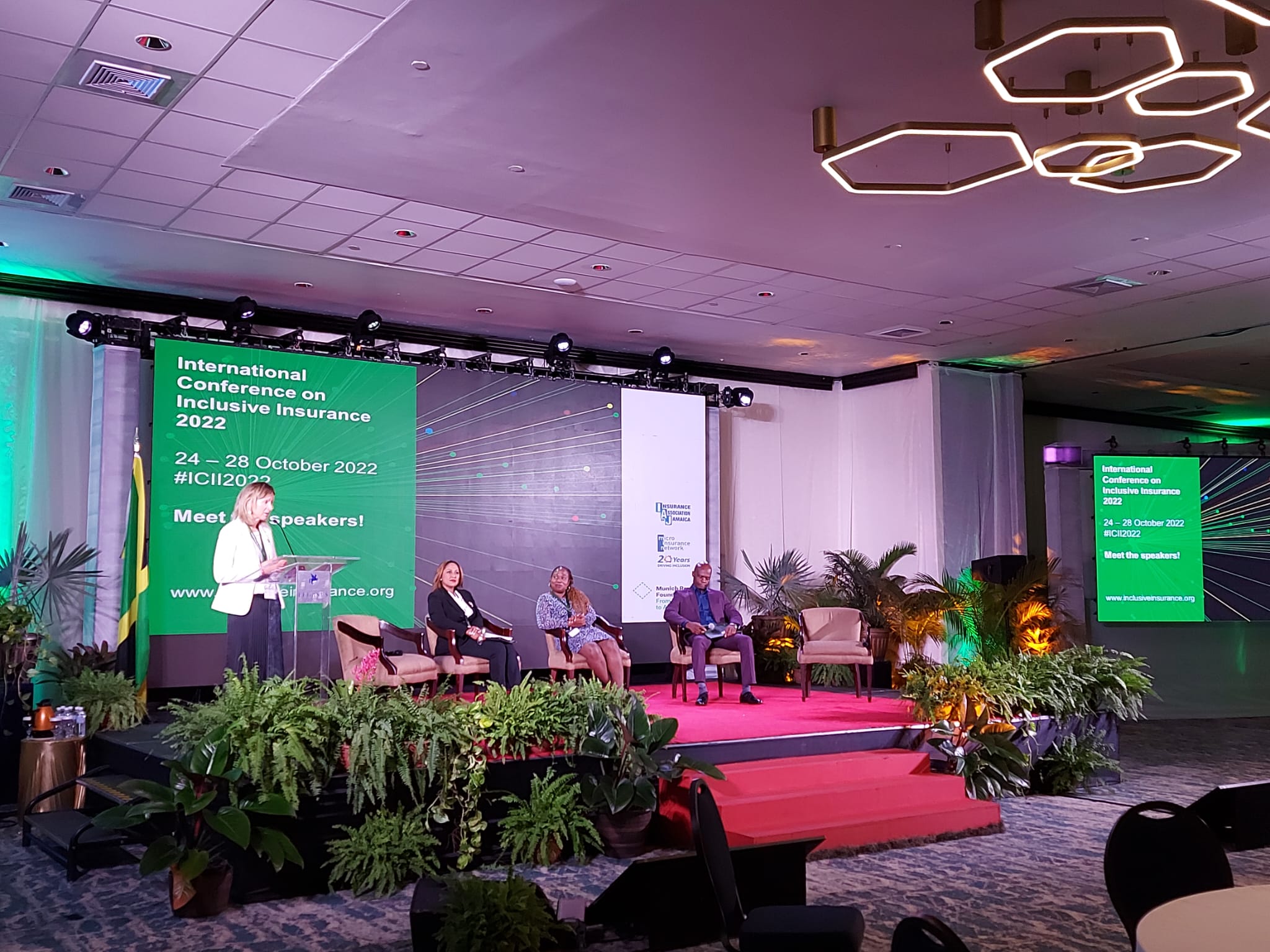
On the morning of 24 October, as a pre-conference workshop, the A2ii and UNCDF jointly held Workshop 1: ‘Training workshop on index insurance best practices for regulators and practitioners in the insurance sector’. Facilitated by Shriya Sundaram, Partnerships coordinator, UNCDF (India), this workshop explored the best-practice guidelines for regulators, insurers and governments and discussed how to create ecosystems for the development of index insurance products. This workshop was based on the joint publication by A2ii and the Pacific Insurance and Climate Adaptation Programme (PICAP) on Index insurance best practices for insurance regulators and practitioners in the Pacific Island countries.
Hannah Grant, Head of the A2ii Secretariat, facilitated the first plenary session of the conference on 25 October, Day 1: ‘Reaching scale in small markets: Regulatory harmonisation in the Caribbean’, C. Samantha Jn. Paul-Samuel, Legislative drafting consultant/Attorney-at-law (Saint Lucia/USA) started with a presentation on the draft harmonised legislative framework for Insurance and Pensions within the Eastern Caribbean Currency Union (ECCU). The 8 islands that make up the ECCU, have a combined population of just 500,000, each with its own regulatory framework, thus requiring companies doing business across the region to seek separate licences and approvals in each country it wishes to do business in. Developing products for low income individuals in each of these is a difficult business case. Developing common single market rules, or recognising neighbour countries insurance laws can ease market access and help providers reach scale. This is especially true for inclusive insurance.
The main goal of this proposed framework is to establish one insurance and pension market across the 8 member territories, with one robust and well-resourced insurance and pension regulator, and a uniform legislation, benchmarked against international standards.
After Paul-Samuel’s presentation, attendants heard from Hugo Lecue, Task Team Leader of Financial Systems, Agence Francaise de Développement (AFD), who shared AFD’s experience with the Conférence Interafricaine des Marchés d’Assurance (CIMA), an example of regional regulatory harmonisation in West Africa.
The presentations were followed by a panel discussion with Rosemary Henry, Vice President of Risk and Compliance at Cuna Caribbean Jamaica Ltd, and Denis Felix, Executive Director of the Grenada Authority for Regulation of Financial Institutions (GARFIN) joining the other speakers on the panel.
The consensus amongst the panellist was that the ECCU Framework would bring significant benefits for reducing cost of cross-border business. However, the challenge remains as to how a single regulator would work in practice.
This framework had been put on pause, but as a result of this session being organised discussions have restarted. Denis Felix expressed his commitment to finalising it and spoke of conversations he had with ECCB governor to get the bill finalised. He also made a ‘call for action’ to industry in ECCU to talk to the supervisor in their jurisdiction to request the Framework to be finalised.
Hannah Grant also spoke at Plenary 4: Insurance and pension for migrant workers: ‘Need and the business case.’ This session was organised by UNCDF and facilitated by Premasis Mukherjee, Remittance and Digital Finance Specialist. This session focused on highlighting the importance of this topic, stressing the great size of migrant population and remittances sent every month across the globe. Hannah Grant’s presentation focused on the main regulatory challenges for migrant insurance (local underwriters licences, restrictions on marketing and selling cross-borders, general definitions, and insurable interests across borders). Therefore, some of the conclusions were that there is a need from supervisors to reflect on other successful experiences (especially microinsurance), collaborate with other jurisdictions to avoid double regulations, and find ways to facilitate greater access to insurance for migrants whilst still ensuring a high level of consumer protection is maintained.

